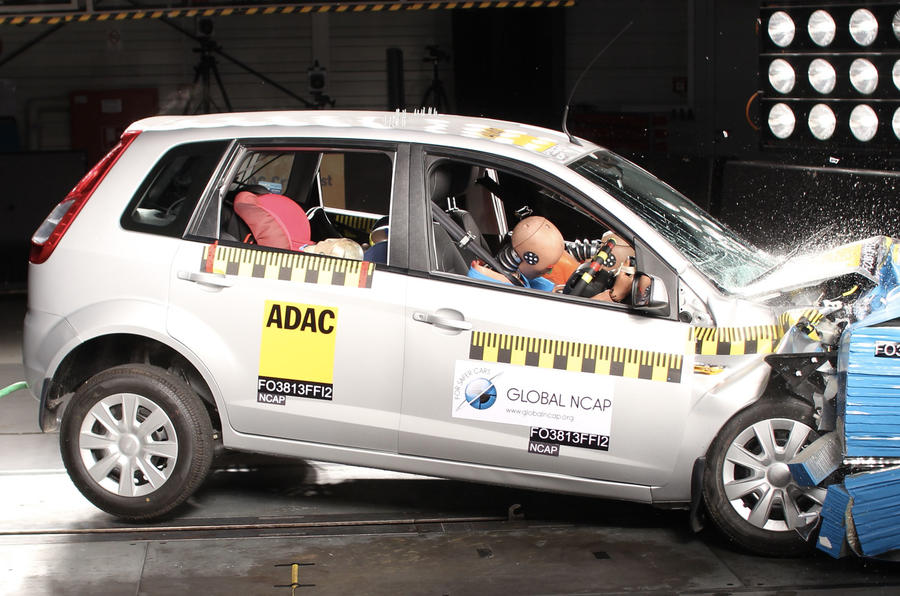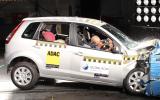Some of India's top-selling cars are not safe to drive, according to the results of recent Global NCAP safety tests.
The safety organisation tested some of India's best-selling cars, including the Tata Nano, Suzuki-Maruti Alto 800, Ford Figo, Volkswagen Polo and Hyundai i10. The combined sales of those models alone accounted for 20 per cent of the country's new car sales in 2013. None of the cars subjected to NCAP's 40mph front impact test scored even a single star rating.
Global NCAP tested the entry-level versions of each model, meaning that none came with airbags as standard.
Official safety reports on the Alto 800, Nano and i10 concluded that even with airbags fitted, their stuctural weaknesses were such that there were "high risks of life-threatening injuries" to drivers. The Figo and Polo had structures that remained stable, with Global NCAP noting that protection for drivers and passengers would be "much improved" with the addition of airbags.
Officials within the group say that the cars tested represent levels of safety that "are 20 years behind the five-star standards now common in Europe and North America". Global NCAP also noted the absence of common safety features like airbags are "putting the lives of Indian consumers at risk".
Responding to the test results, Volkswagen has withdrawn its non-airbag Polo variant from sale in India. An airbag-equipped version of the Polo was also tested, scoring four stars for adult protection.
The same cars were also tested against the UN's basic crash test, a standard that's applied in markets including Australia, China, Japan, Malaysia and the EU. The standard, which includes a 40 per cent offset front impact test at 35mph, is not yet applied in India. All the cars barring the airbag-equipped Polo failed the test.














Join the debate
Add your comment
But it's not like-4-like.
Cheap, basic transport does
I'm surprised, as another
Surely an airbag wouldn't change a car from 0 to 4 stars? Are they emitting side impact bars? Lesser quality welding? Poorer quality steel etc?
My first car, a Clio built 20 years ago and driven 10 years ago, didn't have an airbag. Would probably get a 0 score if it was tested now, but for cheap, basic transportation it was fine - and I'd say that for most buyers in the subcontinent that is what the above cars tested would represent.